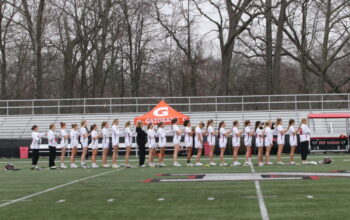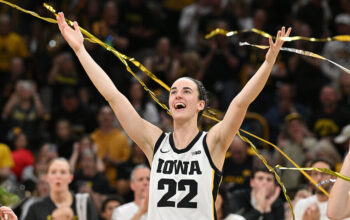Lizzy Burke
Opinions Editor
A few weeks ago at a Free the Children meeting, our club advisor, English teacher Hannah Magnan, commented on how many clubs come and go at NCHS. Being involved in many different clubs throughout high school, I envisioned how easily I could tie together all the cliches of student service clubs (see attached graphic for this piece). I set out to write this article about what causes clubs to fade away so fast, just in time for the annual club fair. However, after a suggested interview with Assistant Principal Ari Rothman, my entire outlook changed.
“I always make a joke that it’s a really difficult process [to start a club],” Mr. Rothman said. “One person has to be interested and that’s it. It goes with transience of clubs; if a kid wants to try something, we’ll try it.” This idea was particularly striking to me. I had thought that having a multitude of clubs with very little interest was a waste of time. Why allow these clubs to exist when they barely get anything done? However, Mr. Rothman helped me realize that one club may only be interesting to two kids out of the entire student body, but it gives them an opportunity to connect with other students over something through the school.
This opportunity to connect has become an important focus of NCHS, as our education is based off of co-curricular interactions beyond the classroom. Recently, the administration has begun to ask for rosters for organizations beyond just sports and theater, but from clubs, as well. “We have begun to collect rosters because we want to track kids who are not involved,” Mr. Rothman said. “Not because they’re doing something wrong but because we want to find a way to get them involved. We have to work extra hard to provide opportunities for these kids who don’t fall into one of those categories, like sports or theater.”
In addition, I had always attributed many of these failed clubs to those juniors who are just looking to add a leadership position to their college applications. Understandable, but still acting out of bad intentions. However, Mr. Rothman looks beyond the motives and focuses on the application. “I say this seriously but not critically – many people want to start clubs in their junior year,” he said. “Once first semester is over a good number of them disappear. Regardless of why clubs begin, in general, I’d much rather give it the chance and see what happens.”
Seniors Haley Michno and Alex Rose started the No Waste for Water Club their junior year so that they could put down another extracurricular as well as a leadership role on their college applications. The club focused on raising money for modified water fountains that reduce the impact of plastic bottles on the environment. However, once they looked farther into the cause they became extremely passionate about the future of their club. “After learning more about the huge impact plastic waste has on our environment the club had so much more meaning, and we can’t wait to see its success,” Alex said. Although they began the club for one reason, they continued with the club for many others, enforcing Mr. Rothman’s principle of endorsing anyone who wants to start a club.
When it comes to the club fair, most students can agree that it has little impact on a group’s development throughout the year. It seems like there are millions of clubs with people stationed around the room, throwing candy and waving their sign up sheets in your face. You can write your name down for over 30 clubs and not attend a single meeting all year. However, when I asked Mr. Rothman how influential the club fair was on a club’s success, again I received an answer that shed new light on the subject. “It’s one of those things that I care more about making sure that all kids know what’s available,” he said. “I’d much rather do the club fair and at least expose everybody, primarily newer students, to see what’s there to get a sense of it. It’s worth it even if it doesn’t give us the impact it should.” Although Mr. Rothman agrees that the club fair can’t measure how well a club does, the event still holds weight with the NCHS community, providing the opportunity to see what’s out there. Also, it’s definitely a trademark experience during your high school career, a day of overwhelming excitement, or “controlled chaos” as Mr. Rothman said.
In short, the plethora of clubs that NCHS hosts shouldn’t be seen as a negative thing. Although it is sad when you hear that another club will not be returning next year, it’s always better to have given it a go than not try at all. For all of you who are looking to start your very own club, Mr. Rothman has some great advice, “Start one!”




